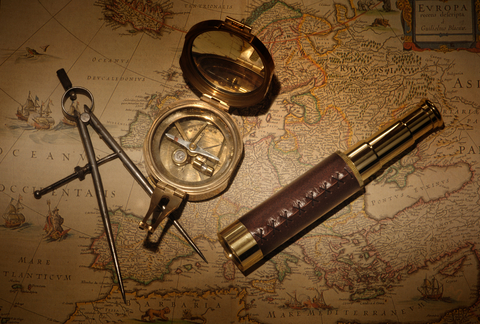Researching something new
Where to start? That’s one of the first questions investigators and researchers ask when faced with a research question. Sometimes we’re researching the same topics as usual, and sometimes we’re researching something new, but we always need some starting points.
In the first case, when faced with a known topic, we have our standard sources, and we usually know where to start. Every so often, though, we’re working with a client in a new industry, or maybe we’re starting to work in a new one. In these cases, we’re in unfamiliar territory, and we don’t know where to start. What can we do?
In these situations, we have two goals:
1. Gather some background information
2. Identify the key resources
But, how do we accomplish these tasks when we’ve never done this type of research? How do we navigate this new information landscape?
First, it’s worth noting that–like most kinds of research–we won’t find answers in just one place. And Google can only go just so far.
Researching a new topic requires a process, one that takes us to multiple places, gradually discovering new information and/or clues about where to find new information. It’s about piecing our findings together to come up with the best, most reliable starting points for new research.
After spending a little time with Google or other general purpose search engine, it’s a good idea to visit some other sources that can help us learn about new topics and identify starting points for research.
Here are some of my current favorites to use when I’m researching a new topic:
Wikipedia – Yes, I know its limitations for deeper research, but for a top-level view of a new topic and maybe some leads to new sources, Wikipedia does the job well. Of course, results depend on the subject and the amount of interest, so sometimes there’s not much there. Again, it’s just one of many places to look, so keep going.
LibGuides – University librarians like to create topical research or study guides, sometimes called LibGuides. They often contain links only available to their students, but many include open sources (recommended by a university librarian!) and a brief overview of the topic. Look for these guides by searching something like this:
[your topic] library (guide OR libguide) site:edu
Generative AI – As professional researchers, we need to use ChatGPT and other GenAI tools wisely. One thing they’re good for is creating a list of authoritative sources that cover a particular topic–keeping in mind that GenAI tools have their limitations and should be used in combination with other sources.
Associations – One of the first questions to ask when researching a new topic is “Who cares?” Who cares enough to compile information on a particular topic and talk about it? Professional associations do, and their websites often include blogs, articles, and lists of experts. If it’s not online, a phone call could speed up the process.
Our networks – Connections that we’ve created and nurtured over time through LinkedIn and in-person meetings offer a wealth of information about all kinds of topics. Most connections are happy to share what they know and can be especially helpful with emerging industries or other topics that may not have a lot of online coverage.
Researching a new topic is more involved than those times when we have some experience. Try these resources for a top-level view and some starting points for research. Let me know how they work for you and if you have any others to add to the list.



